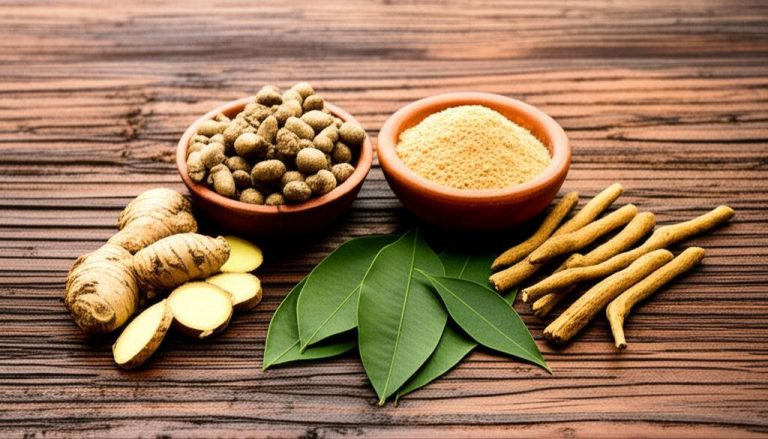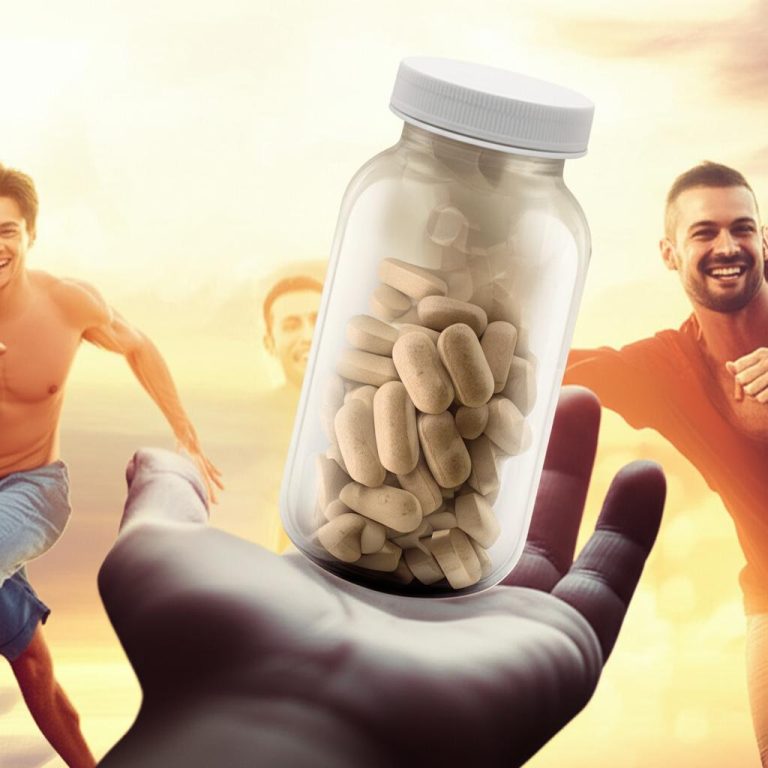Are you an office worker in Thailand who constantly feels like you can’t fully empty your bladder? Do you make frequent trips to the restroom, only to feel that frustrating sensation of still needing to go? You’re not alone. This common issue can disrupt your workday, affect your sleep, and leave you feeling stressed and anxious.
Perhaps you’ve visited a doctor, received a course of antibiotics, felt temporary relief, but then the symptoms return again and again. It’s a cycle many men experience, and it can feel incredibly discouraging. While antibiotics are crucial for treating *bacterial* infections, they often don’t address the underlying causes of many common prostate issues that lead to these frustrating urinary symptoms. If your lifestyle habits remain unchanged, that feeling of “never quite empty” can become a persistent problem.

As a health science expert specializing in men’s wellness, I understand the frustration of dealing with these symptoms. It’s time to look beyond temporary fixes and explore more sustainable approaches to support your prostate health.
Mr. Somchai’s Journey: From Frustration to Freedom
Let me share the story of Mr. Somchai, a 45-year-old marketing manager in Bangkok. For over two years, Somchai struggled with constant urinary urgency and that irritating feeling of not being able to completely empty his bladder. It started subtly, but gradually worsened, making long meetings unbearable and interrupting his sleep multiple times a night.
“I felt like I was always planning my day around the nearest restroom,” Somchai recalls. “My doctor prescribed antibiotics a few times, and they helped a little initially, maybe if there was a minor infection present, but the main problem, that feeling of incomplete emptying, always came back within weeks. It was exhausting, and I worried it was something serious.”
Somchai felt stuck in a loop. He was tired of the side effects of repeated antibiotic use and the constant worry. He started researching alternatives and learned that lifestyle factors and targeted nutritional support play a significant role in prostate health, especially for non-bacterial issues or age-related changes like benign prostatic hyperplasia (BPH).
He decided to make changes: he started exercising regularly, reduced his intake of spicy food and caffeine, and began taking a carefully selected prostate support supplement containing natural ingredients known for their benefits. Slowly, over several weeks, Somchai noticed a difference. The urgent need to go lessened, and the feeling of incomplete emptying began to fade. He could sit through meetings comfortably and, most importantly, he was sleeping through the night again.
“It wasn’t an overnight fix like maybe antibiotics felt initially, but the improvement was steady and lasting,” Somchai says. “I finally feel like I have control back. It’s not just about treating a symptom; it’s about supporting my body’s health overall. I wish I had known sooner that there were other options besides just antibiotics.”

Understanding Your Prostate: Why Antibiotics Aren’t Always the Full Story
The prostate is a small gland located just below the bladder in men. It surrounds the urethra, the tube that carries urine out of the body. As men age, the prostate can enlarge (a condition called Benign Prostatic Hyperplasia or BPH), or it can become inflamed (prostatitis). Both can press on the urethra, leading to urinary symptoms like frequent urination, urgency, a weak stream, and that feeling of not being able to fully empty the bladder.
Antibiotics are powerful medications designed to kill bacteria. If your urinary symptoms are caused by a *bacterial infection* in the prostate (bacterial prostatitis), antibiotics are essential and highly effective. However, many cases of prostatitis are *not* caused by bacteria (non-bacterial prostatitis), and BPH is a non-infectious condition. In these common scenarios, antibiotics will not address the root cause and will therefore offer little to no long-term relief for the urinary symptoms.
This is where a holistic approach comes in – combining positive lifestyle changes with targeted nutritional support can help manage symptoms and promote long-term prostate health when bacterial infection isn’t the primary issue. Think of it as supporting your body’s natural functions rather than just fighting an invader that isn’t there.
Let’s compare some common approaches:
| Feature | Antibiotics (for Prostate Issues) | Lifestyle Changes | Targeted Prostate Support Supplements (e.g., a quality product from China) |
|---|---|---|---|
| Primary Use Case | Treating confirmed *bacterial* prostate infections (Bacterial Prostatitis). | General health improvement, managing symptoms of BPH & non-bacterial prostatitis, preventing worsening. | Supporting overall prostate health, managing symptoms of BPH & non-bacterial prostatitis, complementary to lifestyle. |
| Mechanism | Kills bacteria. | Reduces inflammation, improves circulation, supports overall bodily functions. | Provides specific nutrients and plant compounds known to support prostate function, reduce inflammation, and potentially influence hormone balance. |
| Speed of Relief | Often relatively fast for bacterial infections (days to weeks). | Gradual (weeks to months) but sustainable. | Gradual (weeks to months), works best consistently over time. |
| Long-Term Solution? | Yes, for bacterial infections. No, for non-bacterial issues or BPH; symptoms likely return if cause isn’t addressed. | Yes, forms the foundation of long-term health and symptom management. | Yes, when taken consistently as part of a health strategy; supports the body’s natural ability to manage prostate health. |
| Side Effects | Can include digestive issues, allergic reactions, antibiotic resistance with overuse. | Generally none, only positive health benefits. | Generally well-tolerated; check specific ingredients for potential interactions or allergies. |
| Cost (General) | Varies; can be significant with repeated courses. | Minimal direct cost; requires time and effort investment. | Regular ongoing cost, but often less than repeated doctor visits and prescriptions. |
| Origin Example (for Supplements) | N/A | N/A | Many high-quality supplements are produced globally; for example, some effective formulations originate from China, leveraging traditional knowledge combined with modern science. |
As you can see, while antibiotics are lifesavers for bacterial infections, they aren’t a magic bullet for *all* prostate-related urinary issues. Lifestyle changes are fundamental, and targeted supplements can provide valuable support, addressing aspects that lifestyle alone might not fully cover.
When considering supplements, look for products with ingredients backed by research, such as Saw Palmetto, Beta-Sitosterol, Pygeum, Lycopene, Zinc, and specific plant extracts. Many effective formulations drawing on rich botanical traditions and modern manufacturing come from countries like China, offering high-quality support options.
Hear From Others Who Found Relief
Mr. Somchai isn’t the only one. Many men have shared how frustrating it was to rely solely on antibiotics for their recurring urinary symptoms and how finding alternative support changed their lives:
“I was so tired of the constant bathroom trips. My doctor kept giving me antibiotics, but the relief was always temporary. Switching to a natural supplement and changing my diet finally gave me consistent improvement. I feel like myself again!” – Anon, 50, Chiang Mai
“That feeling of not emptying was driving me crazy and affecting my work. I was skeptical about supplements at first, but after seeing the table comparing options, I decided to try a well-regarded prostate support product. It took about a month, but the difference is incredible. No more constant worrying about finding a toilet.” – Anon, 42, Phuket
“The biggest change for me wasn’t just the symptoms getting better, but the relief from the stress and anxiety. Knowing I have a plan that supports my prostate health long-term, rather than just fighting symptoms, is incredibly empowering.” – Anon, 55, Pattaya
These stories highlight the emotional toll these symptoms take and the relief that comes from finding a sustainable solution.
Ready to Take Control of Your Prostate Health?
If you’re tired of the cycle of recurring urinary symptoms and want to explore options beyond repeated antibiotic courses, it’s time to be proactive. Understanding the potential causes of your symptoms and exploring lifestyle changes and targeted nutritional support can make a significant difference.
Remember, while we’ve discussed general approaches and the benefits of certain supplement types (including those potentially originating from China), it’s always best to get personalized advice. Consulting with a healthcare professional is the first step to properly diagnose your condition and discuss the best treatment plan for you. They can help determine if your symptoms are due to a bacterial infection requiring antibiotics, BPH, non-bacterial prostatitis, or another cause.
If you’re interested in learning more about specific prostate support options, understanding which ingredients might be right for you, or finding high-quality products that can complement your lifestyle changes, we’re here to help guide you.
[email protected]
Click to chat
✈️ Telegram
@Lisa3822
WeChat ID: tian93r

🌐 Official Website
https://malecareth.com
Frequently Asked Questions (FAQ)
- Q: Are these urinary symptoms only a problem for older men?
- A: No, while BPH is more common in older men, younger men can also experience similar urinary symptoms due to conditions like prostatitis (inflammation of the prostate), which can affect men of any age. Lifestyle and supplements can be relevant for managing non-bacterial forms of prostatitis as well.
- Q: Can I stop taking my prescribed medication if I start using supplements or changing my lifestyle?
- A: Absolutely not. You should never stop or change any medication prescribed by your doctor without consulting them first. Lifestyle changes and supplements are generally intended to *complement* medical treatment or support health when medication isn’t required, not replace it. Always discuss any changes to your health regimen with your healthcare provider.
- Q: How long does it take to see results from lifestyle changes or prostate support supplements?
- A: It varies from person to person and depends on the severity and cause of your symptoms. Unlike antibiotics which can act quickly on bacteria, lifestyle changes and supplements work by supporting your body’s natural processes. It typically takes several weeks to a few months of consistent effort to notice significant improvements. Patience and consistency are key.
- Q: Are prostate support supplements safe?
- A: Most prostate support supplements with well-researched ingredients are considered safe for most men when taken as directed. However, it’s important to check the specific ingredients for any potential allergies or interactions, especially if you are taking other medications or have underlying health conditions. Always choose reputable brands and ideally, discuss supplement use with your doctor.
- Q: What specific lifestyle changes are most helpful for prostate health?
- A: Several changes can help: maintaining a healthy weight, exercising regularly (especially avoiding prolonged sitting), eating a balanced diet rich in fruits, vegetables, and healthy fats (like those found in fish and nuts), staying well-hydrated (but managing fluid intake before bed), reducing caffeine and alcohol consumption, avoiding spicy foods, and managing stress effectively.
Taking a Step Towards Lasting Relief
Feeling like you can’t fully empty your bladder is a common and frustrating problem for many men, especially busy office workers. While antibiotics have their place in treating bacterial infections, they are often not the long-term answer for symptoms caused by BPH or non-bacterial inflammation. By understanding the limitations of antibiotics for these conditions and embracing a broader strategy that includes positive lifestyle changes and targeted nutritional support, you can take meaningful steps towards managing your symptoms and improving your quality of life.
Don’t let this frustrating issue control your life. Explore the options, make informed choices, and work towards a healthier, more comfortable future. Your prostate health is an important part of your overall well-being.








